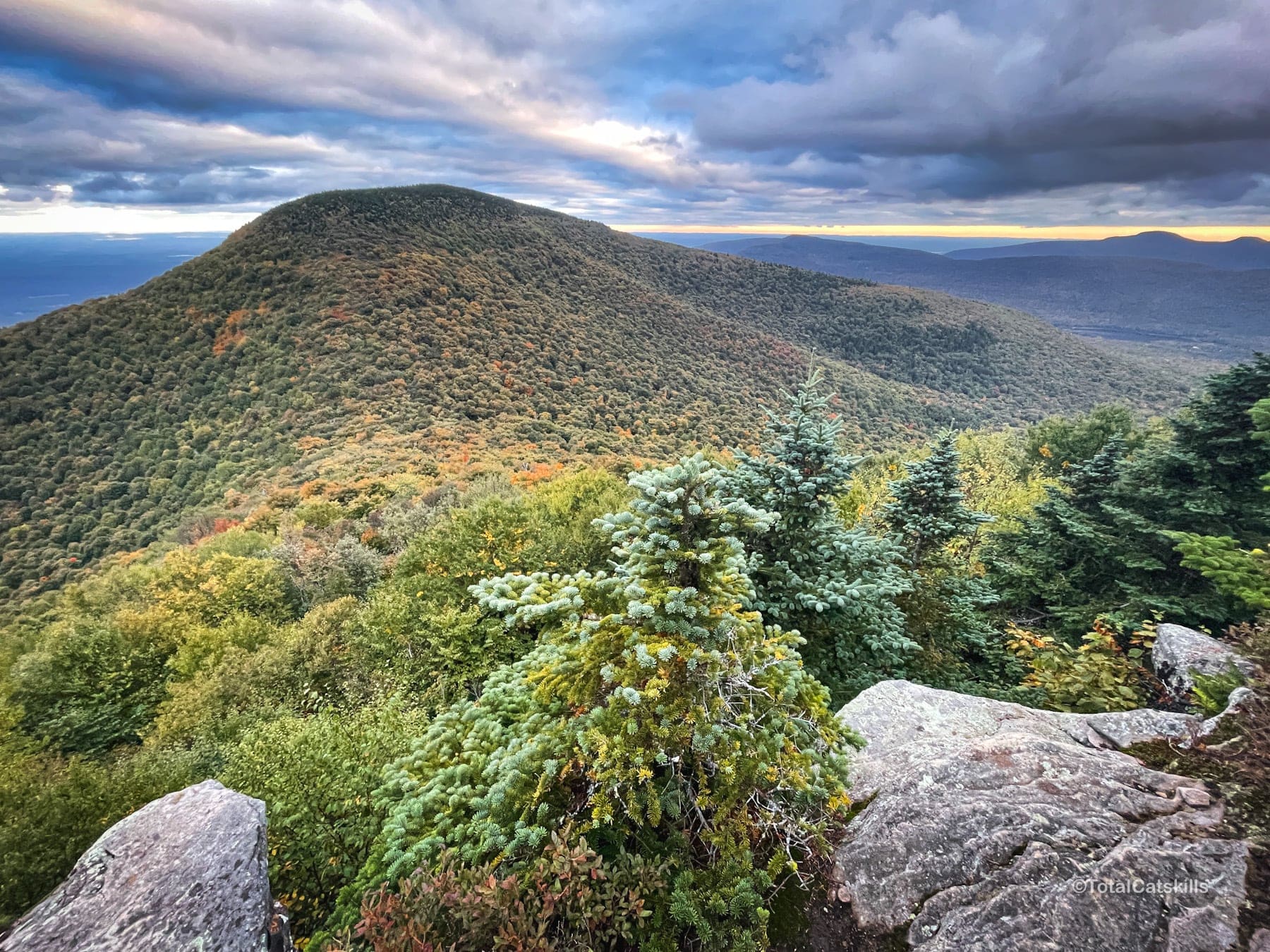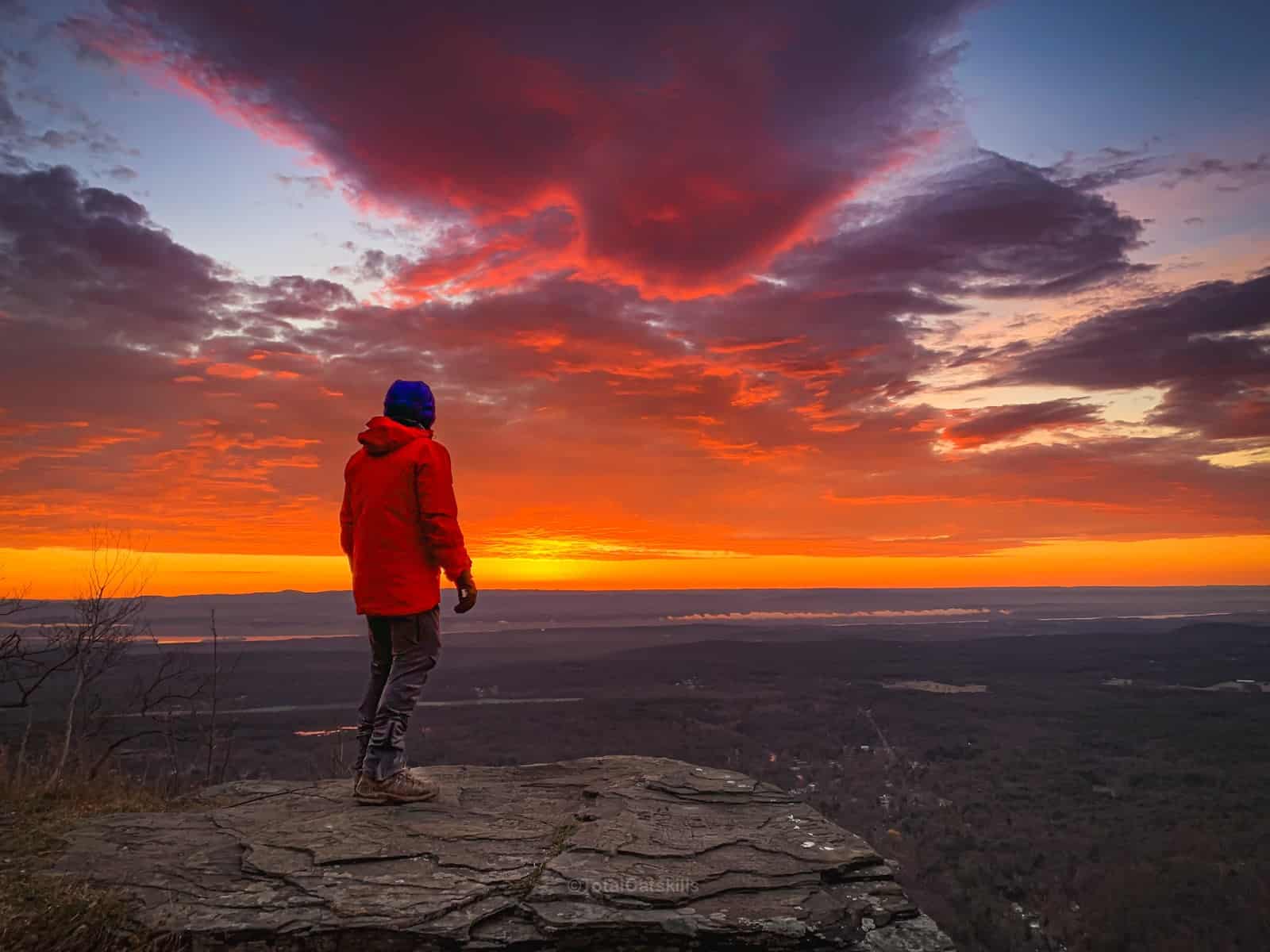Disclosure: This content may contain affiliate links. Read my disclosure policy.
Hiking for introverts is different: the tension between company and chatter is the signal:noise ratio.
Are you an introvert in love with the great outdoors? If you’ve found yourself typing “hiking for introverts,” “quiet hiking trails,” or “how to enjoy solitude in nature” into a search engine, you’re not alone.
Introvert / extrovert / ambivert, there’s nothing wrong with any of these personality styles. And introversion/extroversion is a continuum, not a set of divisions. (I’ve always liked Mike Meyers’ line about being “a site-specific extrovert”.) I think I’m an ambivert who’s really an introvert. But I’m also a social being who lives in an extroverted world.
I love my four kinds of hikes so much—each is so different, each provides a completely different way of experiencing Nature—and I wouldn’t ever want to drop any one of them.
According to many estimates, introverts make up between a third and half of the American population. Yet, despite this figure, much of our culture—including leisure activities like hiking—is built with extroverted characteristics in mind. This post aims to change that narrative.
Let’s explore the four different ways introverts can experience the joy of hiking while being their authentic selves.
The 4 Kinds of Hiking for Introverts
Hiking with a Friend
Hiking with a friend for an introvert is akin to the joy you get from a two-person book club immersed in nature. It’s not just the physical journey through woodlands or up a mountain; it’s also a mental and emotional journey that you get to share with someone who resonates with you. When the only sounds you hear are the rustling leaves, chirping birds, and your own footsteps, a companion who respects your love for these simple pleasures is invaluable. Such an experience goes beyond just filling time; it fills the soul.
- Pro: A familiar companion enhances your comfort level, letting you be more present and appreciative of your surroundings.
- Pro: Having someone you trust implicitly can also add an extra layer of safety, especially in unfamiliar terrains.
- Con: The desire to maintain ongoing conversations might interfere with the introspective quality of hiking.
- Con: Balancing two people’s schedules can be tricky, reducing the spontaneity often cherished in solo hiking adventures.
Get access to hyper-detailed trail guides, insider tips, and expert advice. Join a vibrant community of like-minded hikers, receive exclusive content, and embark on unforgettable outdoor adventures. Whether you’re a seasoned outdoor enthusiast or just starting out on your hiking journey, this website provides invaluable resources to help you explore the best trails in the Catskills, Adirondacks, Hudson Highlands, Berkshires, and beyond. Get access now to all content on this website instantly and enjoy unique supporter benefits.
BTW, you might also enjoy…
- ADK › Whiteface Mountain via Marble Mountain
- DANGER › 6 Feet Under? How Our Adirondack Hike Turned Deadly Serious (Substack)
- ADK › Hurricane Mountain Fire Tower
- CATSKILLS › Catskills Fire Tower Challenge 2025
- Follow › My Instagram @TotalCatskills
- Follow › My writing for Times Union
Hiking with a Group of Friends
Imagine being surrounded by your closest friends while you explore hidden forest paths or climb challenging slopes. The adventure is amplified by the collective energy of people you enjoy spending time with. You have the option to hang back and revel in solitude or jump into the ongoing group conversation. The experience is familiar, but the change in setting—away from urban chaos to natural serenity—offers a refreshing twist. Hiking for introverts can take so many forms.
- Pro: A sense of community makes the adventure memorable, adding an emotional layer to the physical activity.
- Pro: More people bring a wealth of resources, from diverse hiking gear to rich knowledge about trails and terrains.
- Con: You might have to compromise on certain aspects like the choice of trail, hiking pace, or even the time spent on breaks.
- Con: The bigger the group, the more complex the dynamics; you could feel left out if the group’s mood shifts.

Hiking with a Hiking Group
Being part of a hiking group offers a different sort of camaraderie. The focus here is less on deep emotional bonds and more on the shared love for hiking. You have the freedom to either socialize with new faces or keep to yourself without any social obligation. The group’s collective knowledge and planned routes offer an easy way to explore unfamiliar trails safely.
- Pro: These groups often tackle a diverse set of trails, giving you experiences you might hesitate to undertake alone.
- Pro: The loosely structured social setting offers the choice between interaction and solitude, providing an introvert-friendly environment.
- Con: Larger groups can disrupt the natural setting, scaring away wildlife and affecting the serenity.
- Con: The unfamiliar faces and varying hiking philosophies can sometimes induce mild social anxiety.
Solo Hiking
For many introverts, the ultimate hiking experience is going solo. It’s a time when you dictate the rules, set the pace, and decide on the route. It’s your day to connect with yourself and nature without the backdrop of social norms or expectations. The trail becomes your personal sanctuary, offering the space for reflection or even an impromptu meditation session. I think of the mountains as a giant bowl that can contain and give space to whatever I might be feeling in life right now. It’s where I go to feel myself out. Solo hikes are an incredible form of Return for those who find their peace in solitude.
- Pro: Complete autonomy in every decision, from the trail to the pace, to breaks, to extending or cutting short the hike.
- Pro: Solo hikes offer a level of introspection and self-reflection that’s hard to achieve in any other setting.
- Con: Safety becomes a more critical concern when you’re entirely on your own. A twisted ankle or getting lost can become serious issues. (Always pack The 10 Essentials.)
- Con: Extended solitude can sometimes give way to feelings of loneliness or amplify existing anxieties.
Do Introverts Even Like Hiking?
Oh, do we ever! Hiking is an amazing hobby for introverts. You get to choose your adventure—whether that’s hitting the trails solo or tagging along with a group. The best part? You can totally be yourself, tuning in or out of conversations as you please. Happy trails, indeed.
Can an Introvert be Outdoorsy?
Being an introvert myself, the great outdoors has become my sanctuary. Whether I’m stressed, frazzled, or just craving some serenity, there’s nothing like the feel of the trail under my feet. For a long time, I thought I was alone in this, but guess what? It turns out, lots of introverts share this special bond with nature. We often need a moment to recharge, and nature provides the perfect backdrop for that. While the outdoors is a treasure trove of benefits for everyone, it holds a special place in the hearts of those of us who relish our alone time.
How Do Introverts Walk?
LOL, what!? Look, according to Google, this is a very common search term. And I beg of you: if you found this page because you searched “how do introverts walk”, dear lord, please get in touch. I have so many questions. (Answer: We walk like extroverts, we just don’t tell everyone about it. I guess?)
10 Ways Introverts Can Enjoy Hiking More
- Pre-Trip Research — Before heading out, do some online research to find trails that are less crowded. Websites like this one, apps, and forums can offer invaluable insights into the best times and trails for solitude.
- Solo or Select Company — Decide beforehand whether you’d like to hike alone or with a like-minded friend or small group. If social interaction feels draining, solo hiking can be incredibly refreshing.
- Communication Boundaries — If you’re hiking with others, set some communication expectations up front. Let your fellow hikers know that there may be times when you’d prefer to walk in silence.
- Pick the Right Trail — Opt for trails that play to your interests. Whether you’re into photography, bird-watching, or just a fan of certain types of scenery, choosing the right trail can make your experience more enjoyable.
- Mindfulness Practices — Incorporate mindfulness into your hike. Activities like meditative walking can help you engage more deeply with your surroundings and yourself.
- Pack Smart — Include comfort items like your favorite snacks, a good book, or a journal in your backpack. Little personal touches can make your hike much more enjoyable.
- Tech-Free Zone — Consider keeping your phone on ‘Do Not Disturb’ mode. While it’s smart to have a phone for emergencies, minimizing distractions will let you better connect with nature.
- Comfort Stops — Plan your route around spots where you can comfortably sit, reflect, or even meditate. These restful pauses can be as beneficial as the hike itself.
- Capturing Moments — If you enjoy photography, bring along your camera or smartphone. Documenting your journey can be a fulfilling way to engage with your experience.
- Post-Hike Reflection — Once your hike is over, spend a few minutes reflecting on the experience. What did you enjoy most? What would you do differently next time? This reflection can make future hikes even more enjoyable.
Hiking for Introverts
Whether you’re looking for the shared silence of a trusted friend, the communal experience with a group of pals, the low-commitment setting of an organized hiking group, or the uninhibited freedom of a solo venture, introverts have a range of options tailored to their social comfort zones. Remember, the next time you find yourself searching for the ideal hiking experience for introverts, these trails are as much yours as anyone else’s.
Read More
Get full access…
Get instant access to the full version of this site and enjoy great supporter benefits: full galleries, full trail notes, early access to the latest content, and more.
Hot on the website right now…
Follow for more…
Follow my @TotalCatskills content on Instagram for regular hiking inspo and safe, inclusive community.

